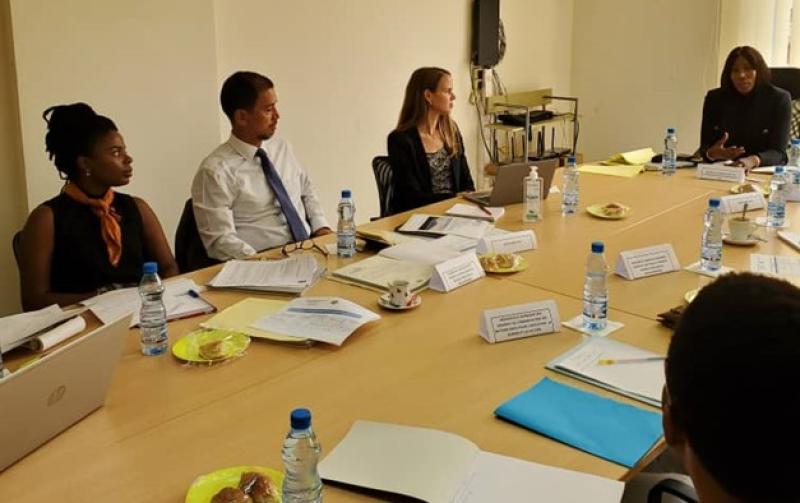

CAFI - The annual review of the partnership was held in Libreville on 7 and 8 July, and was the first in-person review since before the COVID-19 pandemic. The meeting was hosted by the National Climate Council.
As part of the review, the National Climate Council, the CAFI Executive Board and Secretariat met with the Gabonese Ministry of Economy, Ministry of Agriculture, Ministry of Waters, Forests, Sea and Environment (MFME), Agence Gabonaise d'Études et d'Observations Spatiales(AGEOS), Agence de Developpement Agricole du Gabon(ADAG), Agence Nationale des Parcs Nationaux du Gabon(ANPN), Agence gabonaise de Normalisation (AGANOR), the international organisations in charge of implementing programmes under the partnership (AFD, UNDP, TNC and UNESCO) and their national implementing partners, as well as civil society and private sector organisations involved in the governance of the programmes.
The partners reviewed the strengths and results of the two current programmes of CAFI 1 on land use planning and forest monitoring and CAFI 2 on optimising land use and expanding the protected areas network. They also identified areas for potential improvement, and discussed perspectives for implementation the five new programmes recently validated with the support of Gabon’s first results-based payment from CAFI. Finally, they agreed on a set of recommendations to accelerate progress against the programmatic and political milestones of the partnership.
With a forest cover of 88% – amongst the highest in the world – Gabon holds a special status as a high-forest, low-deforestation country. Gabon’s partnership with CAFI was established through the signature of a letter of intent in 2017 and an addendum in 2019. The partnership supports the government’s commitment to reducing greenhouse gas emissions, avoiding or minimizing future emissions, enhancing carbon dioxide absorption and carbon sequestration through the conservation of High Carbon Stocks and High Conservation Value forests, and reinforcing capacity to design, implement and monitor national climate change mitigation programs.
Originally published on www.cafi.org